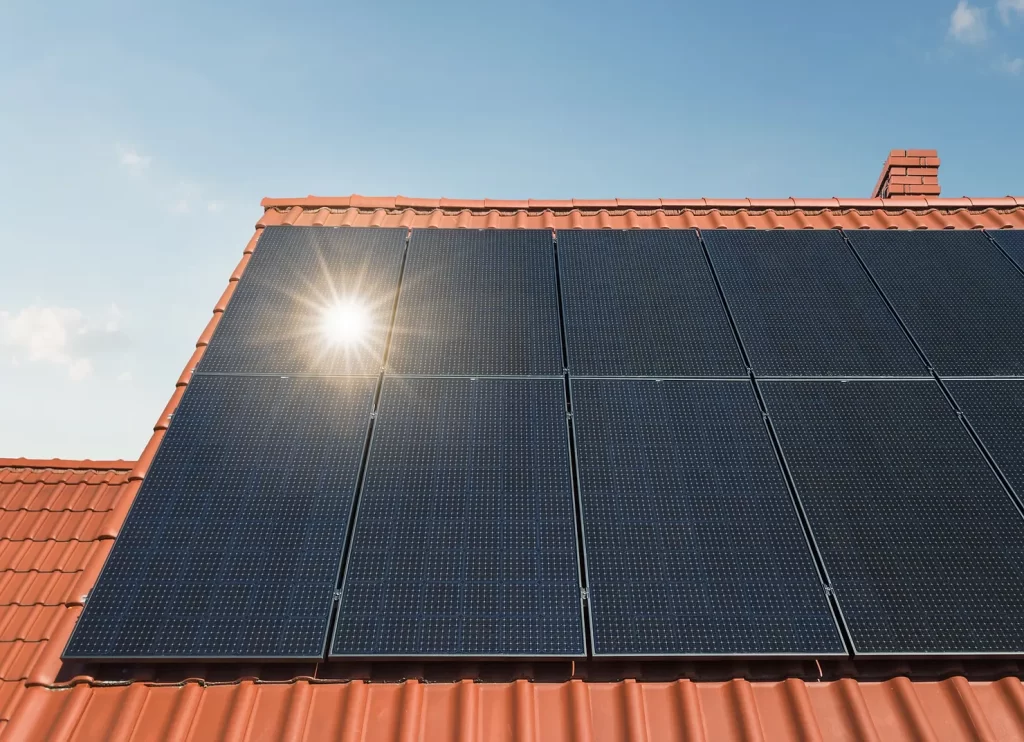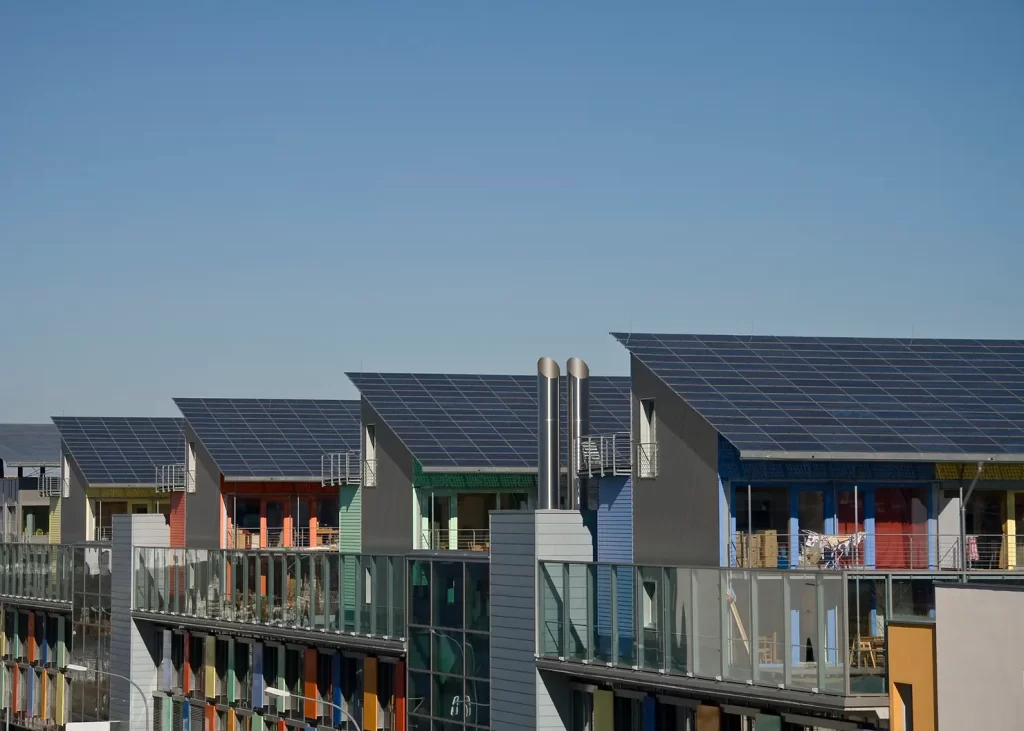
A Guide to Detecting Subtle and Serious Roof Damage Before It’s Too Late
Don't let roof damage go unnoticed. Learn the signs and prevent costly repairs. Protect your home with our expert advice …

As the world progresses and becomes more aware of the importance of renewable energy, solar power has become one of the most popular forms of renewable energy. Solar power is a clean and renewable source of energy that can be used to power homes, businesses, and even entire cities. Unfortunately, Florida is lagging behind when it comes to solar power. According to Global Trade, Florida ranked 6 among the states last year when it came to using renewable energy sources, even though it is nicknamed the “Sunshine State.” The highest ranking states for solar energy are, unsurprisingly, California, Texas, and other desert states.
Florida offers some of the best solar incentives in the country, including a state solar rebate that can cover up to 30% of the cost of solar panels installation. However, the state of Florida has been slow to adopt solar energy, despite the fact that Florida has the potential to be a leader in solar power.
There are several reasons why Florida has been slow to adopt solar power. One reason is that the state’s utilities have been resistant to change. Another reason is that Florida’s electricity rates are already some of the highest in the country, so there has been hesitation for homeowners to switch to solar. However, there are signs that Florida is starting to embrace solar power.
In 2018, Florida’s solar capacity increased by 50%, and the state is now on track to become a leader in solar power. Together with the 2022 Inflation Reduction Act, solar panels cost is lower than ever. With the costs of solar falling and the state’s solar incentives remaining strong, there’s no reason why Florida can’t become a leader in solar power.

On August 7th, 2022, The U.S. Senate passed the Inflation Reduction Act, or IRA. Then, on August 12th, 2022, the IRA was also passed by The U.S. House of Representatives. The IRA was signed into law by the U.S. President, Joe Biden, on August 16th, 2022.
What is the Inflation Reduction Act, and how does it impact renewable energy in Florida? The IRA is meant to help lower costs in healthcare, fight against inflation, and help make renewable energy more accessible to those living in the U.S. Part of the IRA, nicknamed the climate bill, will introduce incentives for families and large businesses to make a switch to a cleaner energy source.
This landmark climate bill is a huge victory for environmental protection. It sets a target of net-zero emissions by 2050, and establishes a number of mechanisms to help reach that goal. Among other things, the bill will create a carbon market, invest in green infrastructure, and promote clean energy, such as solar. PBS News has a lot of useful information on this bill.
The impacts of climate change are already being felt around the world, and solar energy is one way we can fight against catastrophic consequences. This bill will have a massive impact on both the planet and Florida homeowner’s ability to afford sustainable energy. Solar panels are thought to be too expensive for residential middle and lower class households, and the IRA acknowledges this. How exactly will this affect the everyday homeowner’s ability to go green?
Florida does not have a renewable energy standard, which would require utilities to generate a certain amount of electricity from renewable sources. Additionally, Florida has very little solar resource potential compared to other states in the country. In the past, this state did not have many incentives or rebates for solar panels installation, making it less financially attractive for homeowners and businesses.
For Florida homeowners, this bill is the gateway to cleaner, more affordable energy. It includes tax credits on the cost of energy efficient setup, as well as a rebate on energy efficient appliances. This means homeowners could save thousands when switching to clean energy. It also means clean energy will be more accessible as lower income households will receive more financial help when installing clean energy in their home. An increase in clean energy means a stronger electrical grid and a lower electric bill average.
How do solar tax credits work, though? According to NPR, when a homeowner fronts the amount to install solar panels, then they can claim up to 30% of that cost on their taxes. This means that the money used to install solar panels will be deducted from their yearly taxes. It is like a tax discount when switching to clean energy. The amount of tax credit you can claim is directly related to annual income, making it more accessible to lower income households.
Renewable energy is about to become more accessible than it has ever been before. The solar panel cost to install will decrease, there will be more incentives to switch to cleaner energy, and you could get money for any extra energy you do not use. The gatekeeping of clean energy is coming to an end.
One way the IRA bill would pay you is by incentivizing Florida homeowners to switch to renewable energy. It does this through rebates and tax credits. This means you could get up to a 30% discount on your solar panels installation. This bill will also cover replacing old appliances with cleaner energy appliances. With cost no longer being an issue, more and more U.S. residents will make the switch.
By taking advantage of these clean energy opportunities, you would be doing your part in the fight against climate change. Climate change impacts us all, and solar energy just makes sense as it is one of the easiest ways to use sustainable, and cost efficient, energy. It will help your energy bill decrease and stabilize, and it will help the planet for generations to come.

The use of solar energy in Florida is expected to grow in the coming years as the state continues to experience an increase in population and demand for energy, as well as an increase in solar benefits. The state has already seen a boom in the solar industry, with the number of solar installations increasing by more than 20% in 2016. This growth is expected to continue as solar panel cost to install continues to decline, and more homeowners and businesses are looking for ways to save on their energy bills.
In addition to the growth in the residential solar market, the commercial and utility-scale solar markets are also expected to grow in Florida. This growth will be driven by the state’s commitment to renewable energy, which includes a goal of having 30% of its electricity come from renewable sources by 2030. Several large solar farms are already in development in the state, and more are expected to be built in the coming years. The future of solar energy in Florida is bright, and the state is well on its way to becoming a leader in the solar industry.
Charlie Crist, a nominee for the Governor of Florida, includes a huge focus on solar in his campaign. Crist seeks to protect net metering in Florida, as it is one of the biggest incentives for solar panels in Florida.
As of January 1, 2020, Florida has had a statewide net metering policy in place, which is available to customer-generators who own and operate eligible on-site renewable energy generation facilities with a capacity of up to 2 MW in nameplate capacity. This allows customer-generators to offset their energy consumption with on-site generation production during the billing period. At the end of the billing period, the customer-generator is either reimbursed for any “net” excess generation at the utility’s avoided cost of energy, or a rebate is provided based on the value of the renewable energy certificates associated with the net excess generation.
Net metering allows solar panels for home to offset how much solar panels cost. Without it, Florida homeowners lose the extra financial incentive to install solar panels. The loss of net metering would be detrimental to solar energy in Florida. That’s why Crist’s campaign is big news for the Sunshine State.
Solar power is one of the most efficient and cleanest renewable energy sources available, and Florida is one of the best states in the country for solar power generation. Thanks to the state’s high solar insolation (the amount of sunlight that hits the ground), solar PV systems in Florida can generate more electricity than systems in many other states.
Solar power is also a very versatile energy source. Solar PV systems can be used to power homes, businesses, and even entire communities. And, because solar panels use power generated from the sun, it is a renewable resource that will never run out.
There are many reasons to choose solar power, but one of the most important is that it is good for the environment. Solar power generation emits no air pollution or greenhouse gasses, making it a very clean and sustainable energy source. With ample sunlight and a variety of solar incentives available, Florida is one of the best states in the country for solar power.
Even though Florida has yet to reach spot #1 in solar energy generation despite being named the Sunshine State, the new IRA will cause an increase in solar panels for home. Call Lifetime Quality in Tampa, FL at (813) 805-8096 to discuss how solar panels are right for you!